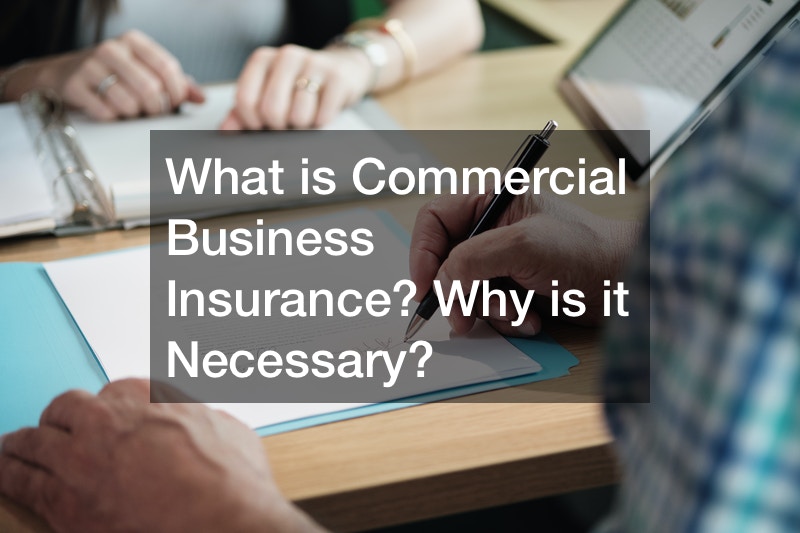
For many, insurance covers are costly investments that may never cash in. Understanding their importance will help you shift your entire perspective to seeing them as crucial to securing your financial future. If you currently do not pay for any insurance, you can begin slowly by reading the helpful list below and identifying which one is worthy of being your next insurance goal. Read on to learn more about crucial insurance policies you need for your health, car, house, pet, house, business, and more.
1. Home Insurance

One vital insurance goal you should have for this year is getting home insurance; it is gradually moving from being a luxury to becoming a necessity. Currently, most mortgage companies will require you as a borrower to have insurance coverage covering your property’s fair market value. They have made this a requirement for getting approval for a loan or other related residential real estate transactions.
Home insurance does not only apply to those who own the home. More landlords require tenants to get renter’s insurance to cover any damages that may occur during their occupancy. The move avoids the legal tussle if a tenant damages the property but cannot cover the total repair costs.
Home insurance allows you to get compensated in case of artificial or natural disasters like fire, hail, water damage, and burglary. In some cases, the damage may be extensive, requiring you to dismantle some parts of your home to the studs, install new spray foam insulation, and rebuild the damaged area from scratch. Your provider will cover all or most of these costs with home insurance, allowing you to resume normalcy quickly.
2. Fire Insurance
Fire insurance is an essential coverage you need if you own a residential or commercial property. This insurance goal covers you from any damages that may occur in the unfortunate event of a fire caused by general exclusions and similar perils. Most property insurances cover fire damage, although you may pay for an extra policy to receive more compensation if a fire occurs. The fire damage protection from general property insurance is capped and may be insufficient to cover all damages in case of a fire.
The amount charged depends on the risk of a fire outbreak in your property or vicinity. The policy will compensate either by replacement cost, where the insurance provider pays for repairs, or by giving you an actual cash value for the damage. The policy covers any interior and exterior damages and, in some cases, many cases will pay any people injured by the fire.
Any damage caused by a deliberate fire set is not covered. The insurance company will likely send a representative to inspect your property, looking at critical areas like the electrical panel wiring. Their report will highlight the level of risk and how much you will pay in premiums to the company, yearly or monthly.
3. Flood Insurance
You may wonder whether there is a need to include flood insurance as an insurance goal if you already have standard homeowners insurance. The answer is yes, there is a need, and that is because homeowners insurance often covers the interior damages to the home due to burst pipes, leaks, or storms. However, you will need a separate policy to receive compensation for property destruction due to floods.
Fortunately, the National Flood Insurance Program (NFIP) offers flexible flood insurance through private insurers. The insurance is meant for homeowners who live in participating communities, often those where floods are rampant. A flood could result from heavy or prolonged rain, dam failures, clocked drainages, or storm surges.
Factors like the property age, floors, and elevation will determine the price of your policy. Regardless of the cost, Your insurance provider will cover interior and exterior damages ranging from the need for basement finishers to a new roof. If you rely on homeowners insurance only, you may have to pay out of pocket in case of extensive damage to your property after flooding.
4. Moving Insurance

Another insurance goal you may want to consider is getting moving insurance to protect your belongings when relocating. The process is more straightforward than other types of insurance, as you won’t have to pay ongoing premiums. You only acquire the insurance coverage when you’re moving, not all year round. You can purchase such a policy from the moving company or a third party.
A commercial mover is likely to have moving insurance to cover the cost of any loss or damage to your property when they help you to move. But these are often basic and may cover a fraction of the price you need for repair or replacement. If you own valuable possessions, get your insurance cover in addition to the mover’s- this way, you’re likely to get more funds as compensation.
The insurance policy will cover furniture, equipment, machinery, and more damages. Talk to your insurance provider for the best possible policy to protect valuable items, including those you could have stored in a safe, like jewelry or guns. Refrain from policies that offer the released value protection as these compensate based on cents per dollar or pound and not on the belongings’ value.
5. Health Insurance
Paying for health insurance is a worthwhile insurance goal for you and your children. Health insurance is a contract between you as a consumer and an insurance company in which you commit to making specified payments every month in return for coverage of some healthcare costs. The standard subjects include pregnancy, illness, injury, and preventive care. The insurance can be privately owned or government-sponsored.
Most insurance covers come with an exception to coverage requiring you to pay some out-of-pocket costs through deductibles up to a specified maximum amount before the provider coverage begins. There is also the option of having one or more co-payments in which you shoulder a section of the overall cost for particular services or procedures, such as the specialized services of a childrens endocrinologist. The federal government has capped the money you can pay out of pocket to cushion you as a consumer.
You can try out government-sponsored insurance if you are a low-income earner, are living with a disability, or are an older adult. Some excellent options include Medicaid, Medicare, and the Children’s Health Insurance Program. These will cover primary healthcare, and in some cases, options like Medicaid receive supplemental coverage through a private insurer to help older adults get more advanced care.
6. Dental Insurance
Dental insurance is one of the more straightforward insurance covers to understand if you have this as an insurance goal for this year. You can get covered as part of your existing medical insurance plan or as a stand-alone policy. It covers different procedures like preventative care and treatments of teeth and gums. It does not cover any cosmetic procured you may want, like crowns, veneers, or teeth whitening.
The cost of the policy depends on your insurance company, location, and preferred plan. You can save money by getting into a network where your current dentist is included. If you do not have a dentist, choose one in a specific network and pick the less expensive plans. Alternatively, you can keep your dentist even if they are not in any insurance network, but you’re likely to pay more out-of-pocket costs for your dental care services.
If you’re an employee, you should consider taking advantage of any dental insurance your employer provides. Deductibles, copays, and coinsurance will likely apply to many such policies, and the maximum coverage is often low, not exceeding $2,000 in most cases. The insurance will cover your children up to a specific age, not below 18 years in most cases.
7. Tree Insurance

We love nature, but sometimes it can cause chaos, especially after extreme weather like storms. If you have trees surrounding your home or business, whether in your compound or your neighbor’s, it is wise to consider tree insurance a key insurance goal this year. In most cases, the damage caused by fallen trees is covered by your homeowner’s insurance. They will compensate you if a tree falls on your compound and damages any of your property.
It is essential to review the terms of your policy with them as some may not offer compensation if the tree is hanging loose but not fallen. The complexities vary from one insurance company to another. If your property is damaged following when a tree service company was tree trimming, then their insurance provider will pay you for the damages.
Getting tree insurance is non-negotiable if you own a commercial tree service company. It is one of the several insurance policies you need for licensure. Fortunately, tree service companies have increased in popularity, and the insurance market has become more competitive, leading to reasonably priced policies. The insurance will cover your employees and casualties and any damage you accidentally cause on powerlines, properties, among other structures.
8. Liability Insurance
If you own a car, are a product manufacturer, or practice medicine or law, getting liability insurance should be your top goal. The policy will cover the cost of damages that injured parties make against you. It will not compensate you but the people you unintentionally hurt. Some examples include personal liability, workers’ compensation, and commercial liability.
The policy will not cover intentional damage and contractual liabilities. However, it will still provide you with the much-needed cushion following an unfortunate injury against another. Personal liability policies protect you against individual actions you take against others and cause harm accidentally; picture unintentionally setting off a gun and injuring someone around you.
9. Pet Insurance
Owning a pet puts pet insurance as an insurance goal that could benefit you this year. It is similar to health insurance because it is taken to reduce the cost of veterinary bills you have to incur out-of-pocket. The policy covers most veterinary examinations and, most important, costly procedures. Find from your selected provider which types of animals they cover, the most common being cats and dogs.
The principle of deductibles still applies, as your insurance provider will likely expect you to make some out-of-pocket costs before the coverage begins. The company will consider different factors in determining your premiums. They may include your pet’s age and the cost of your selected veterinary or pet clinic, among others.
10. Car Insurance

Auto insurance is one of the most common insurance covers because they are required by law for all car owners. It is a non-negotiable insurance goal, as your vehicle is roadworthy once you get one. The contract protects you in the event of an accident to pay your repair costs and any damage or loss you may have caused a third party. The rules vary from state to state, but most have a minimum threshold for the type of insurance you should have.
In many cases, they will prioritize the compensation of any persons you injure, and some policies will pay the third party’s hospital bills but not yours. Your insurance provider will require a minimum amount annually to maintain the policy whether you get into an accident or not. Without payment, you may find your car parked on your asphalt driveway for as long as it takes to pay up. In case of an accident, you must pay deductibles while filing your claim.
The more valuable your vehicle, the higher the value and the higher the premiums paid. For instance, a truck will have a far higher premiums than a van. If you own a motorhome, you may need additional insurance since your car doubles as your residence.
Above are the few insurance covers you need as a homeowner, pet owner, motorist, or business owner. An insurance goal is worthwhile as it reduces financial pressure in the long run. An insurance company is a financial partner that comes in handy when an unforeseen event occurs and requires a lump sum of money from you. Scan the market to find the most competitive policies with the best possible benefits to maximize your investment.




